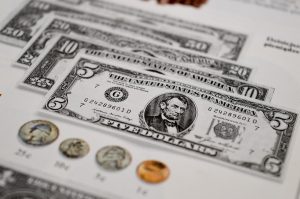Forex, or foreign exchange, is the largest financial market in the world, with trillions of dollars being traded daily. The forex market is open 24 hours a day, 5 days a week, and involves the buying and selling of currencies from around the world. The prices of these currencies are constantly changing, and traders make profits by speculating on these changes. However, one of the major challenges of forex trading is the time it takes to calculate trades. In this article, we will explore why forex takes so long to calculate and what factors contribute to this delay.
One of the main reasons why forex takes so long to calculate is the sheer volume of data involved. The forex market is incredibly complex, with numerous variables impacting the price of a currency. These variables include economic indicators such as GDP, inflation, and employment rates, political events such as elections and geopolitical tensions, and even natural disasters. Traders need to analyze all of this data to make informed decisions about when to buy or sell a currency, which can be a time-consuming process.
Another factor that contributes to the delay in calculating forex trades is the technology used to process trades. Most forex trades are executed through electronic trading platforms, which use complex algorithms to match buyers and sellers. These algorithms need to process a large number of trades simultaneously, which can slow down the system. Additionally, electronic trading platforms can experience technical issues, such as server downtime or connectivity issues, which can further delay the processing of trades.
The time it takes to calculate forex trades is also influenced by the liquidity of the market. Liquidity refers to the ease with which a currency can be bought or sold without affecting its price. Highly liquid currencies, such as the US dollar or the euro, can be traded quickly and easily, while less liquid currencies can take longer to process. This is because there may be fewer buyers and sellers for these currencies, making it more difficult to match trades.
Another factor that affects the speed of calculating forex trades is the level of regulation in the market. Forex trading is a highly regulated industry, and brokers must adhere to strict rules and regulations to ensure the safety of their clients’ funds. These regulations can include requirements for brokers to verify the identity of their clients, to maintain certain levels of capital, and to report their trading activity to regulatory bodies. While these regulations are designed to protect traders, they can also add to the time it takes to process trades.
Finally, the time it takes to calculate forex trades is influenced by the time zones in which the market operates. As the forex market is open 24 hours a day, traders from around the world can participate in the market at any time. However, this also means that trades can be executed at any time, which can lead to delays in processing trades. For example, if a trader in New York wants to execute a trade with a trader in Tokyo, there may be a delay in processing the trade due to the time difference between the two cities.
In conclusion, there are many factors that contribute to the time it takes to calculate forex trades. These include the volume of data involved, the technology used to process trades, the liquidity of the market, the level of regulation, and the time zones in which the market operates. While these factors can make forex trading a time-consuming process, they are also necessary to ensure the safety and fairness of the market. As technology improves and regulations become more streamlined, we may see a reduction in the time it takes to calculate forex trades in the future.





